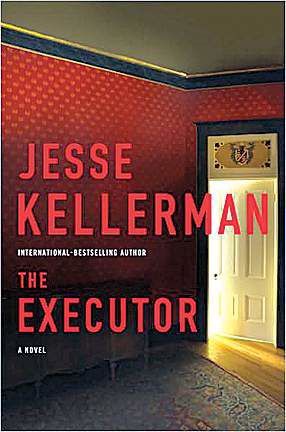Aloof philosopher faces dark temptations in novel
Published 5:00 am Sunday, July 11, 2010

- Aloof philosopher faces dark temptations in novel
“The Executor” by Jesse Kellerman (Putnam, 352 pgs., $25.95)
Unlike his famous parents, Faye and Jonathan Kellerman, who go for action-packed plots in their respective thrillers, Jesse Kellerman has mastered intense psychological suspense in each of his four free-standing novels.
The younger Kellerman’s quieter approach works well as he prefers to let his very different characters talk themselves into a life of crime they never anticipated. Kellerman’s high standards continue in “The Executor,” which has undertones of “Sunset Boulevard” and “Crime and Punishment.” Through his 30-year-old philosophy grad student Joseph Geist, Kellerman creates a strong character study while also examining materialism, manipulation, the fragility of the soul and obsession. Rather than car chases or gun battles, “The Executor” is, at times, a talky story.
As a teenager, Joseph left his violent home in the Midwest for Harvard. His life would be “defined by ideas,” he maintained, not violence, not material things. An ad seeking “a serious conversationalist” brings him to the Cambridge mansion of the elderly Alma Spielman. She just wants someone to debate with a few hours every day, and she’s willing to pay for it. Joseph quickly moves into the Victorian mansion’s spacious guest quarters. But his comfort is threatened by Alma’s nasty nephew, who constantly pops up, demanding money.
Kellerman builds “The Executor” to a crescendo as the author shows how a man who essentially thinks of himself as good can easily cross to a dark side.



